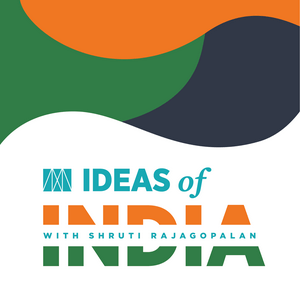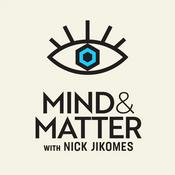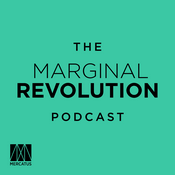153 episodes
- Today my guest is Akshay Jaitly, the author of the recent book, Trilegal: The Making of a Modern Indian Law Firm. He is one of the founders of Trilegal and specializes in advising on energy and infrastructure projects. His research interests include power sector reform, the energy transition and public-private contracting.
We talked about how Trilegal grew in the context of India's market liberalization and sectoral reforms, different partnership structures, delegated legislation, regulatory capture, the alchemy between the founding partners, and much more.
Recorded January 6th, 2026.
Read a full transcript enhanced with helpful links.
Learn more about The 1991 Fellowship.
Connect with Ideas of India
Follow us on X
Follow Shruti on X
Follow Akshay on X
Click here for the latest Ideas of India episodes sent straight to your inbox.
Timestamps
(00:00:00) - 1991 Fellowship
(00:01:11) - Intro
(00:02:20) - In the Shadow of Liberalization
(00:07:28) - Specialization
(00:20:55) - Delegated Legislation
(00:28:35) - Managing Risk
(00:33:30) - Dispute Resolution
(00:38:44) - Trilegal's Partnership Structure
(00:51:57) - Scaling
(00:59:42) - Design or Alchemy?
(01:05:08) - Regulatory Capture
(01:11:27) - Foreign Law Firms
(01:19:08) - Outro Renuka Sane on Regulatory Frameworks, Rule of Law, and Pensions Reforms in India
15/1/2026 | 1h 35 mins.Today my guest is Renuka Sane who is the managing director of Managing Director of Trustbridge. An institution that seeks to improve India's business environment by improving the rule of law. Renuka was a member of many expert committees including: the Task Force of Experts set up by the Employees Provident Fund Organisation; the research team of the Bankruptcy Legislative Reforms Commission; the Pension Advisory Committee of the Pension Fund Regulatory Development Authority; and the Working Group on personal insolvency at the Insolvency and Bankruptcy Board of India. She received a Ph.D. in Economics from the University of New South Wales.
We talked about the old, new, and unified pension scheme and related reforms over the last few decades in India, India's broader financial regulation framework, separation of powers in regulatory authorities, the way regulatory orders are written, and much more.
Recorded December 17th, 2025.
Read a full transcript enhanced with helpful links.
Learn more about The 1991 Fellowship.
Connect with Ideas of India
Follow us on X
Follow Shruti on X
Follow Renuka on X
Click here for the latest Ideas of India episodes sent straight to your inbox.
Timestamps
(00:00:00) - The 1991 Fellowship
(00:01:09) - Intro
(00:02:49) - India's Pension System
(00:35:42) - Private Sector Pension Schemes
(01:06:28) - Regulatory Orders
(01:24:03) - Improving Transparency at the Reserve Bank of India
(01:34:57) - Outro- Today my guest is Snigdha Poonam who is a journalist and writer. She is the author of the new book Scamlands and also the author of the 2018 award winning book Dreamers: How Young Indians Are Changing Their World.
We talked about the scam industrial complex in different states like Jharkhand, Assam and Tamil Nadu in India, the interaction between the scam economy and the formal economy, the transnational scams in China and Cambodia and how they are connected to India, the aspirations and traumas of the scam work force and much more.
Recorded November 17th, 2025.
Read a full transcript enhanced with helpful links.
Learn more about The 1991 Fellowship.
Connect with Ideas of India
Follow us on X
Follow Shruti on X
Follow Snigdha on X
Click here for the latest Ideas of India episodes sent straight to your inbox.
Timestamps
(00:00:00) - Intro
(00:01:13) - The Scam-Industrial Complex
(00:03:48) - On Jamtara and the Economics of Joining a Scam
(00:09:12) - The Moral Logic of Scamming
(00:13:31) - How the State Enables the Scam Economy
(00:15:54) - Inside Assam's Paperwork and Insurance Scams
(00:23:04) - The Politics of Legibility in Assam
(00:32:47) - Women in the Scam Economy
(00:38:32) - How Scammers Get Trapped Inside the System
(00:46:18) - From Local Scams to Transnational Cybercrime
(00:52:18) - Scam Slavery in Southeast Asia
(01:02:15) - Reporting on the Shadow Economy
(01:10:49) - Starting the Story
(01:16:54) - From Aspiration to Desperation
(01:21:56) - Closing Reflections
(01:27:08) - Outro - Shruti and Ideas of India producer Dallas Floer sit down for the 2025 end-of-year episode. They look back at key themes and top episodes from the past year, address listener questions, and look forward to what's in store for Shruti and the show in 2026.
Recorded December 16th, 2025.
Read a full transcript enhanced with helpful links.
Learn more about The 1991 Fellowship.
Connect with Ideas of India
Follow us on X
Follow Shruti on X
Click here for the latest Ideas of India episodes sent straight to your inbox.
Timestamps
(00:00:00) - Intro
(00:01:03) - Listener Questions
(00:25:50) - Big Themes and Top Episodes
(00:42:21) - Personal Moments
(00:46:53) - Looking to 2026
(00:49:47) - Hope or Concern for Next Generation
(00:51:45) - Intellectual Mood Around India
(00:53:01) - Shruti and Animals
(00:56:52) - What's New for 2026
(01:00:07) - The Ideas of India Team
(01:05:21) - Thank You's
(01:09:49) - Outro - Our seventh and final scholar in the series is Ammu Lavanya, a PhD candidate in Economics at George Washington University. Her research is in the areas of International Finance, Monetary Economics, Empirical Banking and Financial History.
We spoke about her job market paper titled International Financial Flows, Credit Allocation and Productivity. We talked about financial liberalization in India, the 2004 banking reform that increased the ceiling on raising foreign equity its impact on market value, lending capacity and increasing productivity through credit in India, the difference between private versus state owned banks, and much more.
Recorded October 9th, 2025.
Read a full transcript enhanced with helpful links.
Connect with Ideas of India
Follow us on X
Follow Shruti on X
Follow Ammu on X
Click here for the latest Ideas of India episodes sent straight to your inbox.
Timestamps
(00:00:00) - Intro
(00:03:06) - Understanding Capital Inflows and Financial Liberalization
(00:04:36) - Concerns Around Foreign Capital and Hot Money Flows
(00:07:12) - The Banking Reform and Ownership Landscape in India
(00:12:10) - Banks Most Affected and Patterns of Foreign Investment
(00:17:05) - Impact on Borrowing Capacity and Lending Behavior
(00:19:38) - Productive Lending and Screening Mechanisms
(00:25:53) - Managerial Practices and Governance Improvements
(00:34:20) - Firm-Level Effects and Data Construction
(00:39:50) - Aggregate Effects and Decline in Misallocation
(00:45:19) - Implications for Policy and the Future of Liberalization
(00:48:42) - Differences Between Public and Private Banks
(00:53:15) - Outro
More Science podcasts
Trending Science podcasts
About Ideas of India
Through conversations with top thinkers in the social sciences and beyond, economist Shruti Rajagopalan explores the ideas that will propel India forward.
Podcast websiteListen to Ideas of India, Life Without and many other podcasts from around the world with the radio.net app

Get the free radio.net app
- Stations and podcasts to bookmark
- Stream via Wi-Fi or Bluetooth
- Supports Carplay & Android Auto
- Many other app features
Get the free radio.net app
- Stations and podcasts to bookmark
- Stream via Wi-Fi or Bluetooth
- Supports Carplay & Android Auto
- Many other app features


Ideas of India
Scan code,
download the app,
start listening.
download the app,
start listening.








































